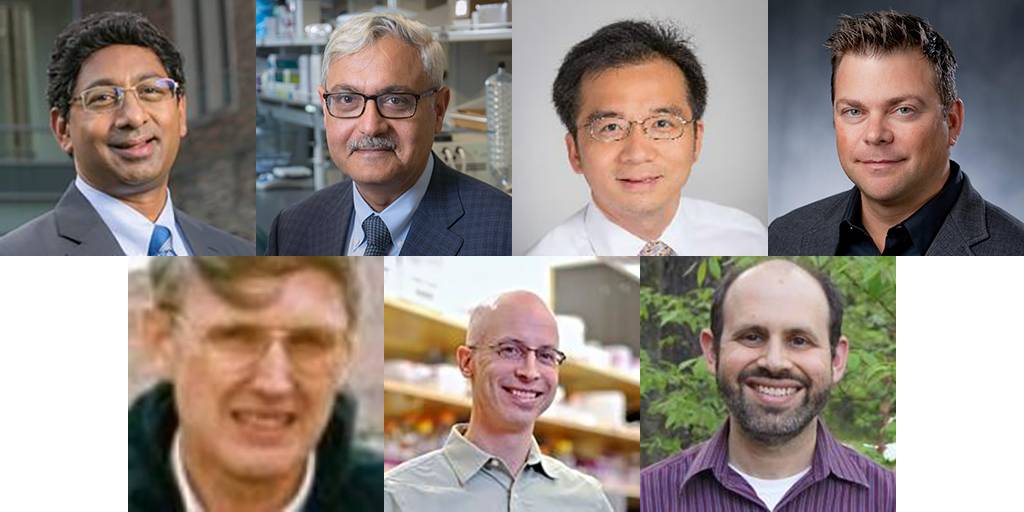
DURHAM, N.C. – Seven members of the Duke University faculty have been named Fellows of the American Association for the Advancement of Science (AAAS). Election as a AAAS Fellow is an honor bestowed upon AAAS members by their peers.
Duke’s 2020 inductees are among 443 new fellows this year who are being recognized for scientifically or socially distinguished efforts to advance science or its applications. They are:
Ravi Bellamkonda, Ph.D., Vinik Dean of Engineering and Professor of Biomedical Engineering. For contributions to neural engineering through the use of materials for nerve and spinal cord repair and brain tumor therapies, and for innovations in engineering education.
Ashutosh Chilkoti, Ph.D., Alan L. Kaganov Professor and Chair of Biomedical Engineering. For distinguished contributions to field of biomedical engineering, particularly in the development of novel methods to deliver biotherapeutics and develop surfaces that resist protein interactions.
Tony Huang, Ph.D., William Bevan Professor of Mechanical Engineering and Mechanical Science. For distinguished contributions to the field of acoustofluidics, particularly for developing acoustic tweezers that are capable of precisely manipulating bioparticles in complex fluids.
Kevin LaBar, Ph.D., Professor of Psychology and Neuroscience in Trinity College of Arts & Sciences and associate director of the Center for Cognitive Neuroscience. For distinguished contributions to the study of the neuroscience of how emotional events modulate cognitive processes in the human brain.
Donald W. Loveland, Ph.D., Professor Emeritus of Computer Science in Trinity College of Arts & Sciences. For distinguished contributions to the field of automated deduction and development of the model elimination theorem-proving procedure. He is best known for the Davis-Putnam-Logemann-Loveland algorithm, a backtracking-based search algorithm.
Kenneth D. Poss, Ph.D., James B. Duke Professor of Cell Biology in the Medical School and Director of the Regeneration Next Initiative. For distinguished contributions to the field of organ regeneration, particularly using zebrafish as a model to study mechanisms underlying heart regeneration.
David M. Tobin, Ph.D., Associate Professor of Molecular Genetics and Microbiology in the Medical School. For distinguished contributions to the field of mycobacterial pathogenesis and host response, particularly using a zebrafish model to understand both bacterial and host contributions.
The new fellows will be presented with an official certificate and a gold and blue (representing science and engineering, respectively) rosette pin on February 15 during the 2020 AAAS Annual Meeting in Seattle.